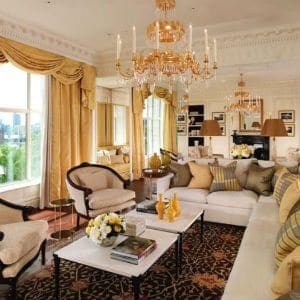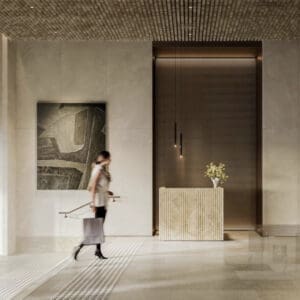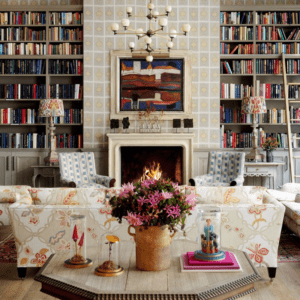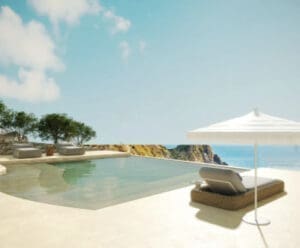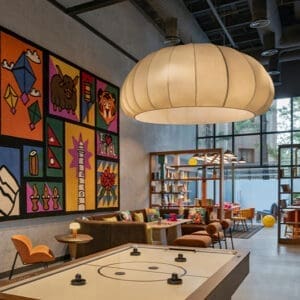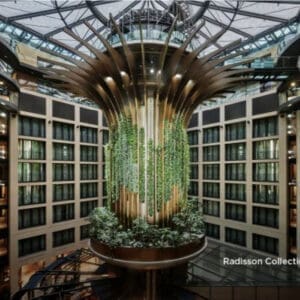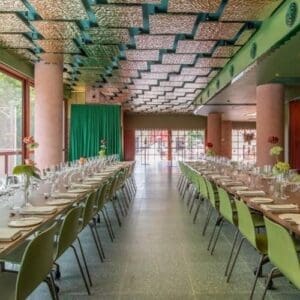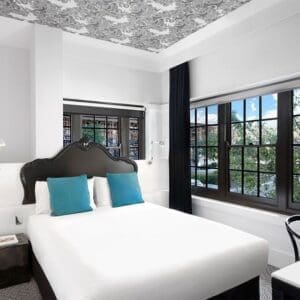
Chinese investors have upped the ante in the Australian hotel sector, accounting for 42% of the $1.7 billion in hotel sales year-to-date according to new research from CBRE.
CBRE Hotels Executive Director Robert McIntosh said the Australian hotel market was being increasingly targeted by Asian capital – with Chinese investors leading the charge.
“Recent volatility in global equity markets, particularly in China, and the onset of low-yielding bond markets has served to increase the appeal of property as an investment class, with Australia perceived to be a relatively low risk, strong, stable and transparent market in which to invest,” Mr McIntosh said.
Significant purchases this year include that of the proposed The Ribbon project in Darling Harbour by Chinese-backed development and investment group Greaton and the sale of the Park Regis in Sydney to a Chinese private capital group.
Other transactions include South Molle Island in the Whitsundays, which was purchased for $25 million by Shanghai-based China Capital Investment Group (CCIG), 18 months after the group acquired the adjacent Daydream Island Resort and Spa for $30 million.
CBRE Hotels National Director Wayne Bunz noted that the ability to acquire freehold properties was particularly attractive, given the leasehold nature of property ownership in China.
“Many Chinese investors are seeking generational buying opportunities, acquiring assets that they can hand down to their children, not just for one generation but for several generations to come,” Mr Bunz said
“They are also showing strong interest in Australian leisure assets in order to capitalise on the current strength in the tourism sector, which is benefitting from record inbound and domestic tourism.”
The increase in Chinese investment (which totals $715 million year to date) comes amid what has been a quieter period in the Australia hotel sector after a record year in 2016.
CBRE’s data highlights 28 sales totalling $1.7 billion in the first three quarters of the year compared to 41 sales totaling $2.3 billion in same period last year.
However, the average size of transactions has been growing – from $36 million in 2014 to $55 million in 2015, with the average transaction size this year being even higher at $60 million.
The average price per room has not increased, but the size of the properties has; from an average size of 102 rooms in 2014 to 142 rooms in 2015 and 165 rooms in 2016.
Mr Bunz said the data also highlighted that the location of where capital was being invested was changing.
This change has not been on state by state basis, with NSW attracting between 49% and 56% of investment each year followed by Victoria at 19% to 27% and Queensland at 16% to 17%.
“Rather, the shift involves the growing volume of capital that is being invested in regional locations,” Mr Bunz said, noting that significant sales had occurred this year in markets such as Cairns and the Central Coast of NSW.
“In 2014 and 2015, transactions in regional areas comprised around 20% of total sales by value. Year to date, that figure has grown to 24% and when you look at the data by number of sales the change is even more dramatic, up from 40% to 60%.”
Why have the changes been occurring and what does this mean for the hotel market?
Mr McIntosh said the global economic outlook appeared to indicate that the current low interest rate environment would continue for some time.
“Investors are therefore seeking higher returns than can be achieved from passive investments and the risk margins are falling,” Mr McIntosh said.
“Against this backdrop, yields are being compressed and asset appreciation is being achieved irrespective of the lack of income growth. The result is that higher yielding properties are becoming more attractive and the hotel sector has certainly benefited from this trend, particularly in Australia.”
Mr Bunz noted that the availability of properties for sale had reduced and capital was therefore chasing opportunities in markets that were seen to have higher yields and income growth potential.
“The Cairns market is a classic example of this. Having suffered from declining visitor numbers and financial performance for some years, this market is in a turnaround phase, with a real potential shortfall of rooms in the near future. Hence this has become an attractive location for investors,” Mr Bunz said.
Moving forward, CBRE is forecasting this top quality CBD hotels will continue to attract very strong interest and investors seeking higher yields will be looking increasingly at the choice between secondary CBD locations or regional assets.
“Properties for sale will still be difficult to source and picking the right markets will be vital,” Mr Bunz said.
One of the next tests of the market will be the sale of The Reef House Palm Cove MGallery by Sofitel and the Rydges South Park Adelaide, which have been listed for sale via an international Expressions of Interest campaign.
CBRE Hotels National Directors Rob Cross has been appointed to sell the high profile hotels either separately or in one line. The campaign is being managed on behalf of Prime Hotels – a private company associated with David Horbelt and Malcolm Bean.


